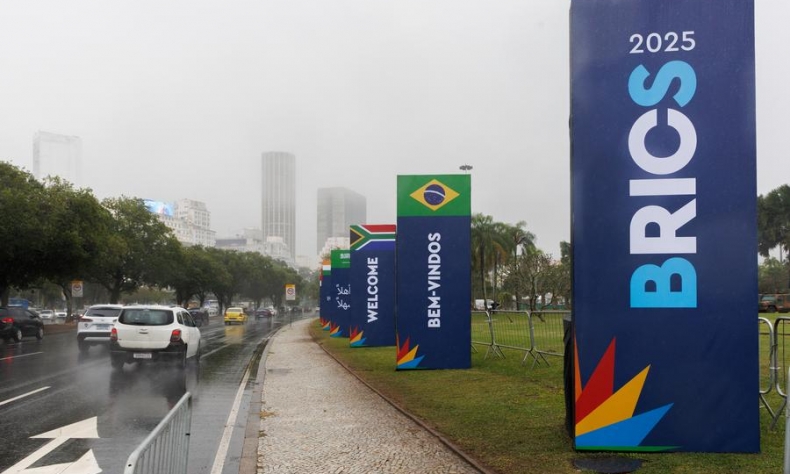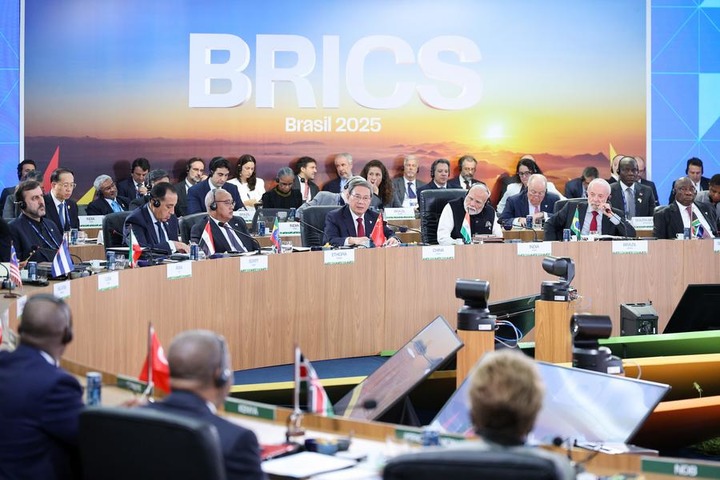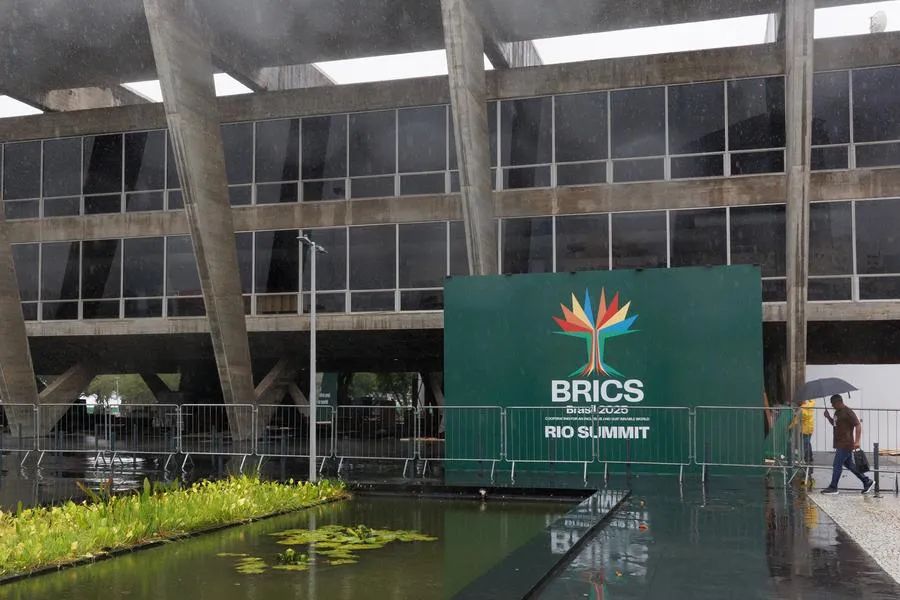The Rio Summit Underscores BRICS’ Growing Role in a Shifting World Order

BRICS nations reiterated their strong commitment to multilateralism and the upholding of international law, including the purposes and principles outlined in the UN Charter.
BRICS leaders called for a reinvigorated and reformed multilateral international order in its 17th leaders’ summit held in Rio de Janeiro, Brazil, July 6-7. Held under the theme “Strengthening the Global South Cooperation for a More Inclusive and Sustainable Governance,” the Rio summit comes at a time of increasing tensions in international arena.
Such a background found its insightful portrayal in the words of Chinese Premier Li Qiang who addressed the summit’s plenary session on Peace and Security and Reform of Global Governance.
“At present, changes unseen in a century are unfolding at an accelerated pace, international rules and order are being severely challenged, and the authority and efficacy of multilateral institutions continue to wane,” said Li, calling on BRICS to be the vanguard in advancing global governance reform.
Chinese President Xi Jinping’s vision for global governance, grounded in the principles of extensive consultation, joint contribution and shared benefits, has increasingly demonstrated its contemporary relevance and practical significance, Li said.
Premier Li was also following upon President Xi’s remarks at BRICS Kazan summit in Russia last year where Xi called on BRICS members to “build the multilateral mechanism into a major venue of solidarity and cooperation for the Global South and a vanguard force for global governance reform.”
“The BRICS cooperation mechanism is a pillar force in promoting equitable and orderly multi-polarization of the world and a universally beneficial and inclusive economic globalization,” President Xi said in Kazan.
The 17th BRICS Summit, under Brazil’s chairmanship, culminated in the adoption of nearly 120 commitments in the joint declaration, addressing a wide array of issues, including climate change, global governance, finance, trade, health, and artificial intelligence, among others. It is the outcome of a process which involved creating or reinforcing 200 new cooperation mechanisms following over 200 meetings held throughout Brazil’s presidency, according to a statement by the chairmanship.

This year marks the 80th anniversary of the signing of the United Nations Charter. At the Rio Summit, BRICS nations reiterated their strong commitment to multilateralism and the upholding of international law, including the purposes and principles outlined in the UN Charter. The declaration further advocates for enhanced representation of developing countries, particularly from Africa, Latin America, and the Caribbean, in global governance structures and decision-making processes.
“We acknowledge that multi-polarity can expand opportunities for emerging markets and developing countries to develop their constructive potential and enjoy universally beneficial, inclusive and equitable economic globalization and cooperation,” said the BRICS Rio Declaration.
Expressing concern about current state of polarization and fragmentation in the international order, BRICS members highlighted “the importance of the Global South as a driver for positive change, especially in the face of significant international challenges, including deepening geopolitical tensions, rapid economic downturns and technological changes, protectionist measures and migratory challenges.”
It also called for a comprehensive reform of the UN system and Bretton Woods institutions, including the World Bank and International Monetary Fund (IMF) to reflect the realities of a transforming international system.
BRICS finance ministers in a joint statement called for a reform of the IMF quota system, including voting rights and contributions to reflect the growing weight of Global South, and demanded an end to the tradition of European management at the top of the international financial institution.
“With full respect to a merit-based selection process, regional representation must be enhanced for the IMF management, overcoming the anachronistic post-World War II agreement that is unfit for the current world order,” the finance ministers said.

The Rio Declaration also highlighted the issue when it said, “BRICS countries continue to play a pivotal role in voicing the concerns and priorities of the Global South, as well as in promoting a more just, sustainable, inclusive, representative and stable international order based on international law.”
“Achieving fairness and justice is a persistent pursuit of BRICS countries and an important theme of BRICS cooperation. When international rules are being undermined and bullying practices are on the rise, we need to stand up for what is right and speak up for justice,” said Chinese Premier Li when addressing the Rio Summit.
“We need to act as a positive and stable force for good in the world, promote dispute settlement by peaceful means, and seek solutions that address the root causes based on the true merits of issues,” he stated.
The first meeting of the expanded BRICS in Rio with its 11 full members (Brazil, Russia, India, China, South Africa, Egypt, Ethiopia, Indonesia, Iran, Saudi Arabia, and the United Arab Emirates), and 10 partner countries (Belarus, Bolivia, Cuba, Kazakhstan, Malaysia, Nigeria, Thailand, Uganda, Uzbekistan and Vietnam) also adopted the BRICS Leaders’ Framework Declaration on Climate Finance, the BRICS Leaders’ Declaration on Global Governance of Artificial Intelligence, and the BRICS Partnership for the Elimination of Socially Determined Diseases.
“These initiatives reflect our joint efforts to promote inclusive and sustainable solutions to global issues,” it stated.
The author is an international relations expert and researcher.
The article reflects the author’s opinions, and not necessarily the views of China Focus.
 Facebook
Facebook
 Twitter
Twitter
 Linkedin
Linkedin
 Google +
Google +










